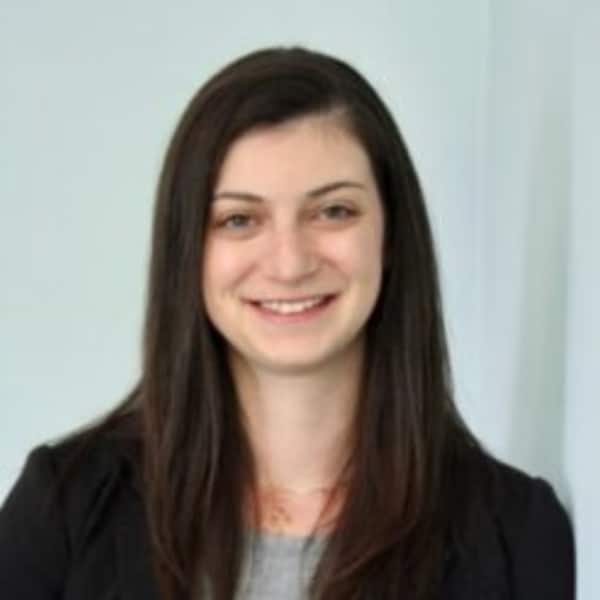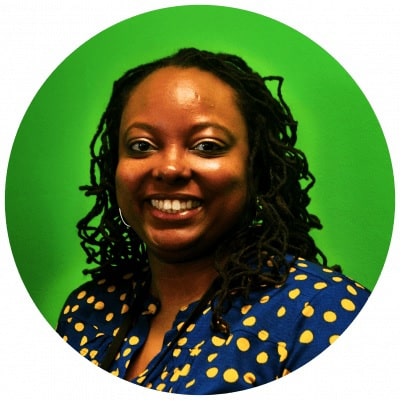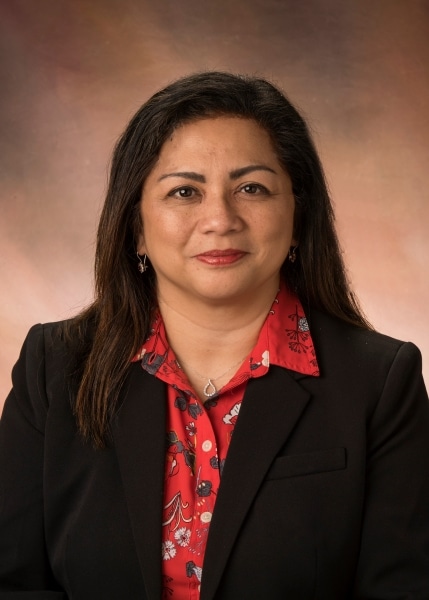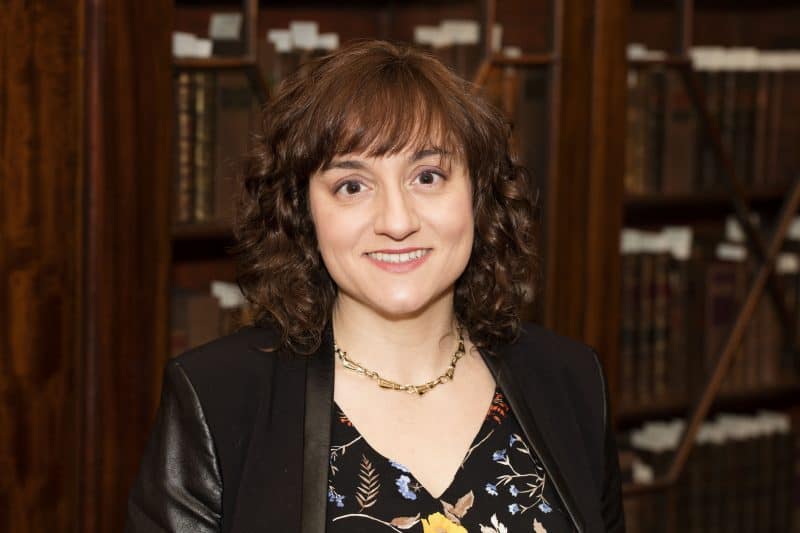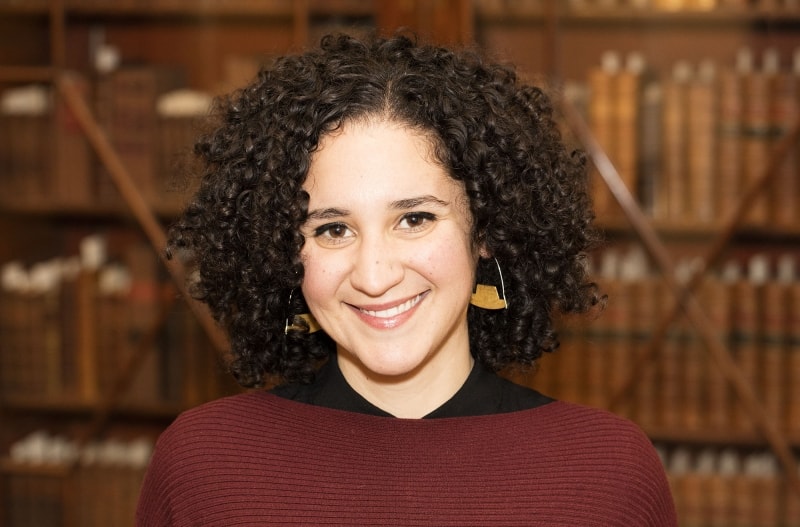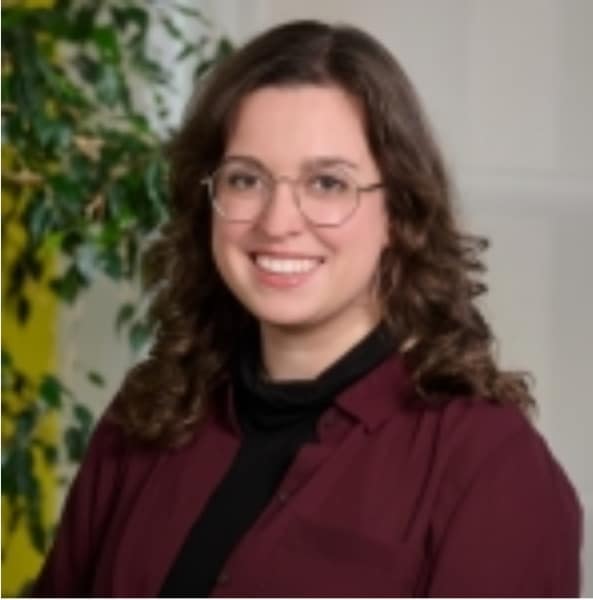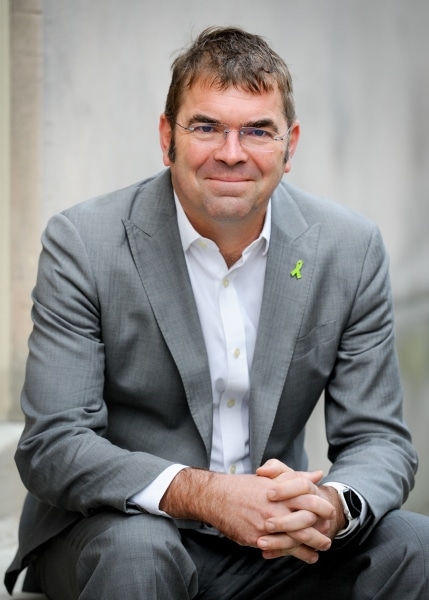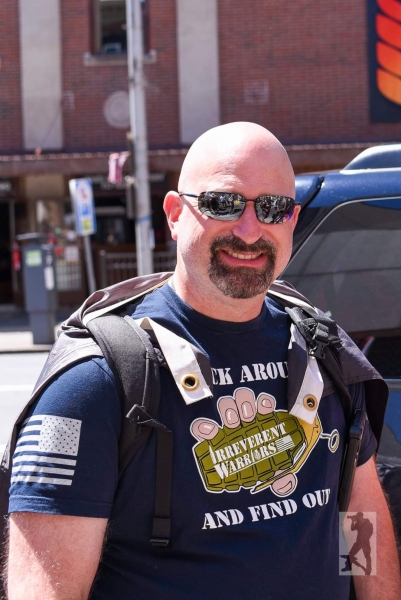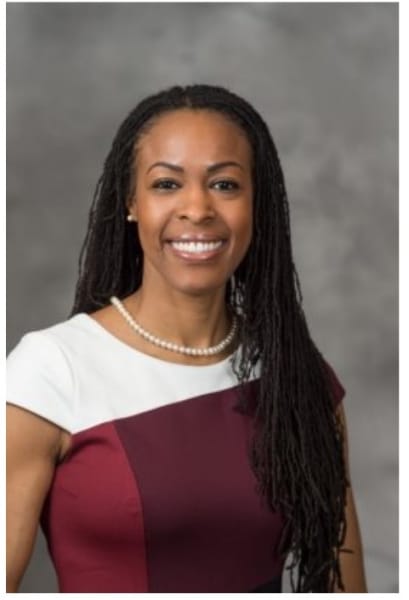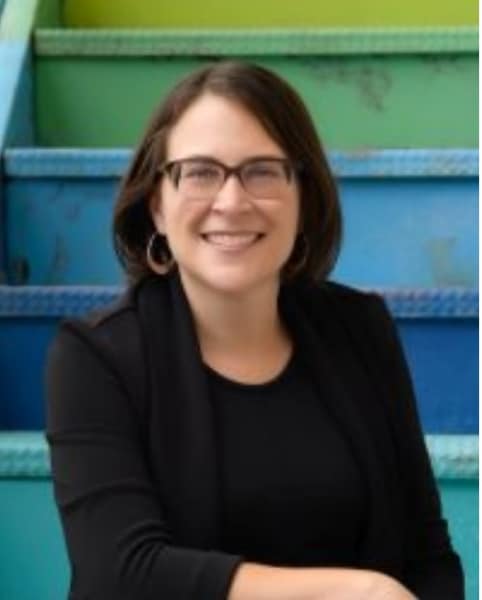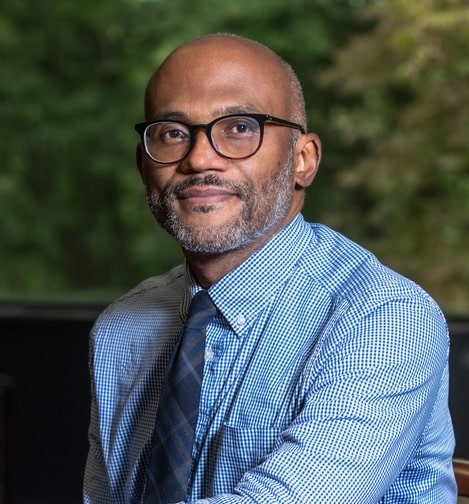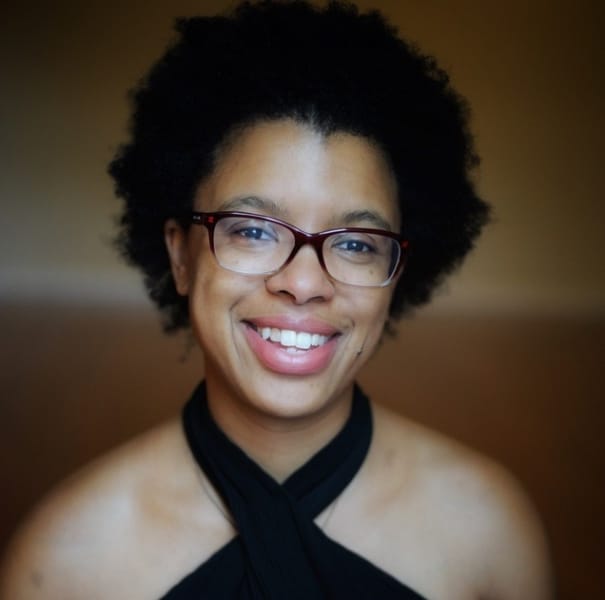Giving Voice: The Past, Present, and Future of Mental Health Treatment in America
Presenters
Shelby Arnold: Staff Psychologist specializing in Forensic Psychology, Beck Institute for Cognitive Behavior Therapy
Dr. Shelby Arnold is a Staff Psychologist at Beck Institute Center for Recovery-Oriented Cognitive Therapy, where she provides training and consultation to systems, agencies, and teams across the country in Recovery-Oriented Cognitive Therapy (CT-R). She received her PhD in Clinical Psychology with a concentration in Forensic Psychology from Drexel University. Her professional interests include alternatives to standard prosecution (e.g., problem-solving courts, diversion programs) and improving implementation and dissemination of evidence-based and recovery-oriented care in forensic settings.
Lamya Broussard: Senior Clinician at Uplift Center for Grieving Children
Lamya Broussard, LSW, MSS, MLSP is a dedicated Certified Trauma Informed Senior Clinician at Uplift Center for Grieving Children who has been in the field for more than a decade. She’s honored to have worked with and to continue providing therapeutic healing support to marginalized communities including youth in foster care, Black & Brown Immigrants, LGBTQIA+ homeless youth, BIPOC front line advocates and juvenile justice involved youth impacted by compounded grief & trauma. She’s earned her Bachelor’s degree in Psychology from Tuskegee University and her Masters in Social Services and Law & Social Policy from Bryn Mawr Graduate School of Social Work & Social Research with a specialization in Child & Family Wellbeing. Social Services is Lamya’s life purpose, as she enjoys helping others navigate their healing process. As a School & Community Services Senior Clinician, Lamya facilitates weekly grief groups to students grieving within Philadelphia schools (including public, charter, private and parochial) and has also co-developed and implemented Uplift’s curriculum and activities for Justice Involved Youth. Additionally, she’s represented Uplift on Dougy Center’s Grief Out Loud podcast (episode downloaded 1,500 times in 24 hours), radio stations, national symposiums, panels, and school district trainings including NACG, Philly Trauma Conference, Central Texas Grief Symposium and Board of Education of Fayette County Kentucky’s school district. Lamya continues to provide grief and trauma healing advocacy to Uplift children, families, and students. She’s been a member of the Alliance of Black Social Workers since 2010 and is the Founder/Director of Coming Out More Equipped Consulting Services (C.O.M.E.) which engages with other community-based organizations.
Consuelo Corazon Cagande: Division Chief of the Community Care and Wellness Program at Children’s Hospital of Philadelphia.
Dr. Cagande earned her degree in Bachelor Arts from Rutger’s University, in New Brunswick, NJ and her medical degree from Cebu Institute of Medicine, in Cebu, Philippines. She trained in General Psychiatry at the Robert Wood Johnson Medical School/Cooper University Hospital in Camden, NJ. She did a Child and Adolescent Psychiatry Fellowship at Johns Hopkins University Hospital. She was a Residency Training Director for 12 years, a Psychiatry Medical School Course and Clerkship Director, an invited speaker nationally and internationally, published articles, authored book chapters, and editor of a textbook on Positive Psychiatry, Psychology and Psychotherapy focusing on wellness and resiliency. She is currently Chief of the Division of Community Care and Wellness and Senior Associate Program Director and Fellowship Advisor in the Department of Child and Adolescent Psychiatry and Behavioral Sciences at Children’s Hospital of Philadelphia. She is also an Associate Professor of Psychiatry at Perelman School of Medicine of University of Pennsylvania. Her areas of interest are anxiety, depression, trauma, school mental health, integrated/collaborative care, positive Psychiatry and cultural Psychiatry.
Rachel D’Agostino, Curator of Printed Books at the Library Company of Philadelphia and Co-Curator of the exhibition Hearing Voices: Memoirs from the Margins of Mental Health
Rachel joined the Library Company in 2000. She is the Curator of Printed Books, previously having worked as Reference Librarian, and in the Cataloging and Administration departments. She has worked most extensively with the Library Company’s collections of printing for the blind, historical ephemera, institutional and popular medicine, and early American imprints. In 2013, she co-curated the Library Company’s exhibition Remnants of Everyday Life: Historical Ephemera in the Workplace, Street, and Home. She followed this in 2016 with Common Touch: The Art of the Senses in the History of the Blind. In addition to an MLS from Clarion University, Rachel holds a Master of Theological Studies degree from Harvard Divinity School and a B.A. in Religion from Temple University.
Sophia Dahab, Assistant Curator of Printed Books at the Library Company of Philadelphia and Co-Curator of the exhibition Hearing Voices: Memoirs from the Margins of Mental Health
Sophia Dahab joined the staff of The Library Company in January of 2019 after having worked in the field of special collections librarianship since 2013. She holds a BA in English from Grinnell College and an MS in Library and Information Science from Pratt Institute, with a concentration in archives and special collections. Her particular research interests are in the history of bookbinding, specifically publishers’ bindings and the gift and literary annual market in the mid-19th century. Sophia also works on our social media accounts, sharing the Library Company’s rich collections with the wider community. In addition to her work at the Library Company, Sophia is also an adjunct Assistant Professor at University of the Arts, where she teaches on the history of the book and book arts.
Liana Kathleen Glew, Prison Education Program Manager of the Restorative Justice Initiative at Penn State University
TITLE: “Memoirs of Madness: Asylum Reform and Patient Memoirists in the Nineteenth Century”
Liana Glew is the Prison Education Program Manager at Penn State University’s Restorative Justice Initiative. Her academic training is in American literature, and her research on disability studies and psychiatric history focuses mainly on the late-nineteenth and early-twentieth centuries. She is specifically interested in the many genres of text that came out of psychiatric institutions at the time, including paperwork, memoirs, and archival patient writing. She is the winner of the 2021 History of the Human Sciences Early Career prize, and her writing can be found in J19 and the forthcoming edited collection Cripping the Archive. Motivated by this research, she now works in the field of restorative justice and prison education; as the largest psychiatric treatment facility in the US is currently a county jail, she sees this work as a direct intervention into the legacy of psychiatric institutions.
Paul Grant: Director of Research, Innovation, and Practice at the Beck Institute Center for Recovery-Oriented Cognitive Therapy (CT-R)
Paul Grant, PhD, is Director of Research, Innovation, and Practice, Beck Institute Center for Recovery-Oriented Cognitive Therapy (CT-R). With Aaron T. Beck, he originated CT-R and conducted foundational research to validate it. Dr. Grant developed group, family, and milieu CT-R approaches, and directs large projects implementing CT-R nationally and internationally. He has developed innovative implementation tools and is involved in researching positive beliefs and teamwide culture change as mediators of successful CT-R outcomes. He is the co-author of Recovery-Oriented Cognitive Therapy for Serious Mental Health Conditions and Schizophrenia: Cognitive Theory, Research, and Therapy.
Marc Herzog: National Coordinator, Irreverent Warriors Inc.
Marc Herzog is a pre-9/11 Navy veteran and National Leadership Mentor with Irreverent Warriors. Since attending his first event in 2016, he has attended 29 suicide prevention events, and has risen from attendee to New York City Coordinator to Human Resources Director to National Coordinator. As a National Coordinator, Marc is responsible for the hosting of suicide prevention events in 25 cities across the United States, focused on the use of humor and camaraderie to create support networks and eliminate isolation. When he is not wearing short shorts and combat boots, Marc is a full-time cybersecurity analyst and consultant. His hobbies include making movie references at inopportune times, singing poorly, and leveling up his dad-joke cred. He and his wife, Sarra have been married for 16 years, and they have a teenage daughter.
Diana Louis, Assistant Professor in Women’s and Gender Studies and American Culture at the University of Michigan
TITLE: The “Method in Her Madness”: Harriet Tubman and Nineteenth-Century Conceptions of Insanity
Dr. Diana Martha Louis’ research pursues the intersections of Disability Studies and Critical Race Studies with respect to issues of mental illness in African American life. Her current project, Colored Insane: Slavery, Asylums and Mental Illness in 19th-Century America examines the impact of major transformations in both American psychiatry and African Americans’ social condition — the end of one of America’s prototypical institutions of confinement and the expansion of another, slavery and asylums, respectively. It tells the story of how nineteenth-century psychiatric discourses made African Americans mad by both constructing disorders according to prevailing notions of race and “insanity,” and inflicting real psychological harm within asylums, plantations, jails, and society writ large. Further, it shows how Black intellectual thought on mental illness often challenged reigning psychiatric beliefs. Colored Insane reveals that multilayered, ubiquitous and ongoing experiences of mental illness (real and imagined) among 19th-century African Americans set the stage for black experiences with mental illness for generations to come.
Dr. Louis is beginning a second project that explores mental illness and psychiatry among blacks at nineteenth-century asylums in other parts of the African Diaspora including Black Rock Hospital in Barbados, West Indies and Lutindi Hospital in Tanzania, East Africa.
Anne Parsons, Director of Public History at University of North Carolina – Greensboro
TITLE: Asylums and the Carceral State
Anne Parsons (she/they) is an associate professor in the History Department at UNC Greensboro, where she serves as the Director of Public History. Dr. Parsons published From Asylum to Prison: Deinstitutionalization and the Rise of Mass Incarceration after 1945, which was the co-winner of the Disability History Association’s 2019 Outstanding Book Award. She has worked on numerous public history projects, including the traveling exhibit Care and Custody: Past Responses to Mental Health, which launches in 2023. Dr. Parsons currently serves as project director of Remembering Resistance: The 1942 Tuchyn Ghetto Uprising, a hybrid digital/physical traveling exhibition on a Jewish uprising in the Holocaust.
Martin Summers, Professor of History and African Diaspora Studies at Boston College
TITLE: When Community Mental Health Met Community Control: Chicago’s Woodlawn Mental Health Center and the Black Freedom Struggle
Martin Summers is a cultural historian of the nineteenth- and twentieth-century U.S., with particular research and teaching interests in race, gender, sexuality, and medicine. He regularly teaches courses on post-1865 US and African American history; gender and sexuality in African-American history; and medicine and public health in the African diaspora.
Summers’ current book project, Inner City Blues: African American Mental Health and Social Policy in Twentieth Century Urban America, is an historical examination of how social scientists, psychiatrists and psychiatric social workers, government officials, and community organizers understood the relationship between urbanization and mental illness, and consequently sought to address the mental health care needs of African Americans in so-called ghettoes. Summers’ research has been supported by the Ford Foundation, the American Council of Learned Societies, the Radcliffe Institute for Advanced Study, and the National Humanities Center.
Nicole Taylor, Founder, A Joyful Pause
Nicole Taylor is dedicated to supporting individuals in their personal growth and transformation. She is a Big Leap Coach, faculty for the Restoring Resourcefulness Program, a NAMA-certified Ayurvedic Health Counselor, a Certified Vishoka Meditation Teacher, and a 500-hour certified yoga teacher. It is her life’s work to use these sciences to help people access deeper levels of well-being at home and at work.
Nicole wrote the book A Joyful Pause: 52 Ways to Love Life to help people fill their lives with more connection and bring more of their whole self forward every day. She has facilitated individual and organizational trainings since 2008, including for social change organizations such as Fairmount Park Conservancy, Mural Arts Foundation, Montgomery County Coalition for the Homeless, Barnes Foundation, and Billions Institute.

